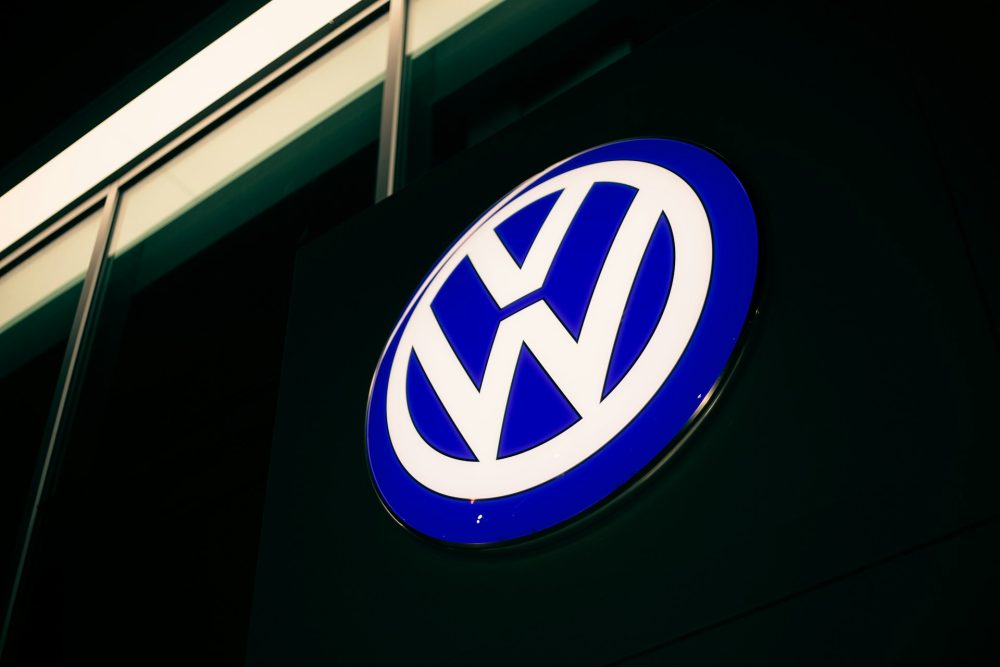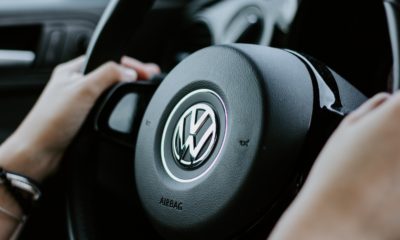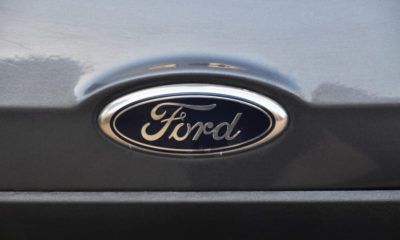Impact Investing
European Carmakers to Pay Millions of Euros to Chinese Competitors to Avoid CO2 Fines
The European Commission’s CO₂ rules impose fines for exceeding emission limits, pushing carmakers to boost EV sales, pay fines, or buy carbon credits. Many, like VW and Renault, consider pooling with Chinese competitors, raising political concerns amid EU tariff hikes. Reduced EV incentives in Germany and France complicate compliance, pressuring Brussels for more flexible policies.

Major European carmakers such as Volkswagen may have to shell out hundreds of millions of euros to buy carbon credits from Chinese electric vehicle (EV) makers to avoid fines for failing to meet EU emissions rules due by 2025.
The European Commission’s new rules, designed to incentivize the reduction of CO2 emissions, provide for fines of 95 euros per gram of CO₂ per kilometer once the limit of 93.6 grams is exceeded. Therefore, car companies operating in Europe have three options: increase sales of electric vehicles by lowering prices, pay the fines, or buy carbon credits from less polluting producers.
Many European car groups are opting for “pooling”, that is, they offset the emissions of their fleet by collaborating with other companies that sell electric vehicles. This is the case of Tesla, which has already sold carbon credits to Stellantis, Ford and Toyota, or Mercedes-Benz, which has decided to join Polestar and Volvo (both controlled by the Chinese Geely).
According to the Financial Times, Volkswagen and Renault, which may not be able to achieve the goals alone, could instead collaborate with Chinese companies such as MG-SAIC and BYD. The latter in particular has one of the largest pools of credit to offer thanks to the high sales of electric vehicles in the EU.
Political and market implications for European carmakers
This is a controversial situation as it strengthens Chinese competitors at a time when the EU has raised tariffs on Chinese cars to protect European carmakers. Alliances with Chinese manufacturers are a politically sensitive issue, as some governments, such as Germany and France, have stakes in local manufacturers (such as VW and Renault). In addition, reductions in government incentives for purchasing electric vehicles in Germany and France have slowed sales, making it harder for European carmakers to meet their targets.
So while European carmakers like VW and Renault aim to avoid fines by switching production entirely to electric models, they may be forced to collaborate with Chinese competitors to comply with the rules, which could further weaken the competitiveness of the European car industry, increasing pressure on Brussels for more flexible rules.
__
(Featured image by Erik mclean via Unsplash)
DISCLAIMER: This article was written by a third party contributor and does not reflect the opinion of Born2Invest, its management, staff or its associates. Please review our disclaimer for more information.
This article may include forward-looking statements. These forward-looking statements generally are identified by the words “believe,” “project,” “estimate,” “become,” “plan,” “will,” and similar expressions. These forward-looking statements involve known and unknown risks as well as uncertainties, including those discussed in the following cautionary statements and elsewhere in this article and on this site. Although the Company may believe that its expectations are based on reasonable assumptions, the actual results that the Company may achieve may differ materially from any forward-looking statements, which reflect the opinions of the management of the Company only as of the date hereof. Additionally, please make sure to read these important disclosures.
First published in ESG NEWS. A third-party contributor translated and adapted the article from the original. In case of discrepancy, the original will prevail.
Although we made reasonable efforts to provide accurate translations, some parts may be incorrect. Born2Invest assumes no responsibility for errors, omissions or ambiguities in the translations provided on this website. Any person or entity relying on translated content does so at their own risk. Born2Invest is not responsible for losses caused by such reliance on the accuracy or reliability of translated information. If you wish to report an error or inaccuracy in the translation, we encourage you to contact us.

-

 Business4 days ago
Business4 days agoDow Jones Stalls Near Record Highs as Inflation-Fueled Rally Awaits Next Move
-

 Business2 weeks ago
Business2 weeks agoTopRanked.io Weekly Affiliate Digest: What’s Hot in Affiliate Marketing [Health Trader Affiliate Program Review]
-

 Fintech1 day ago
Fintech1 day agoFirst Regulated Blockchain Stock Trade Launches in the United States
-

 Africa1 week ago
Africa1 week agoAir Algérie Expands African Partnerships























